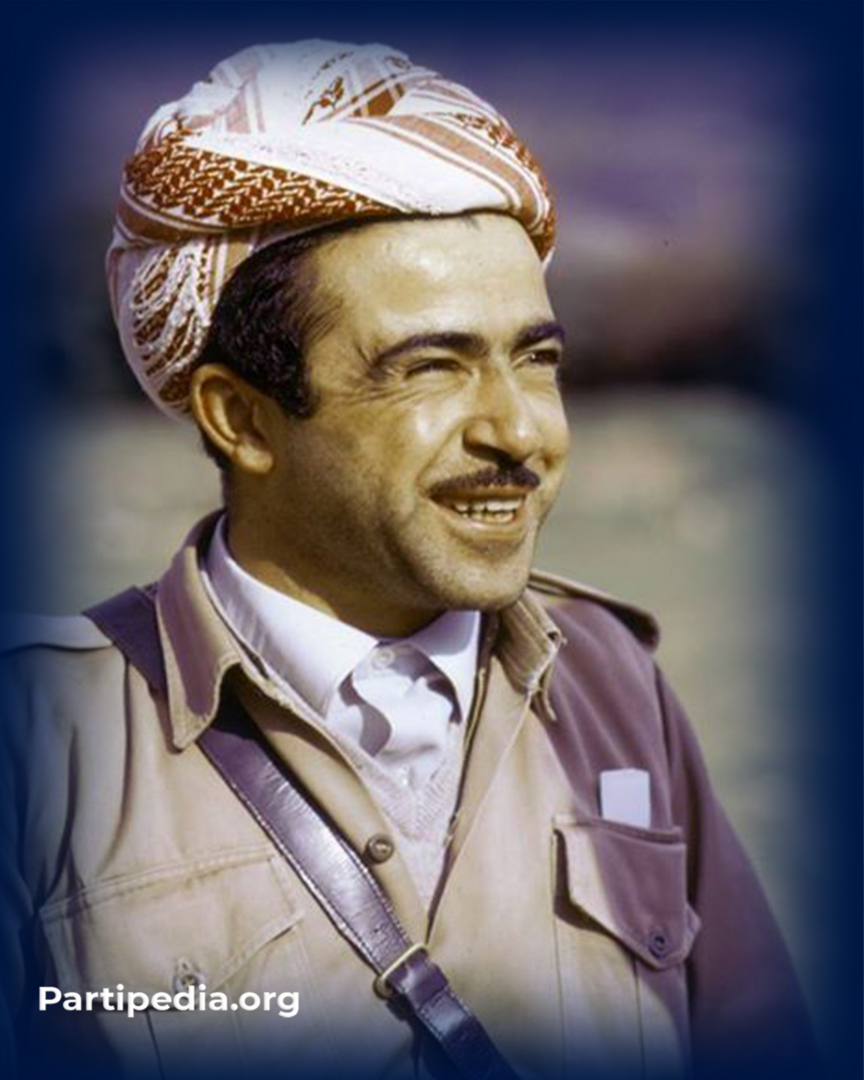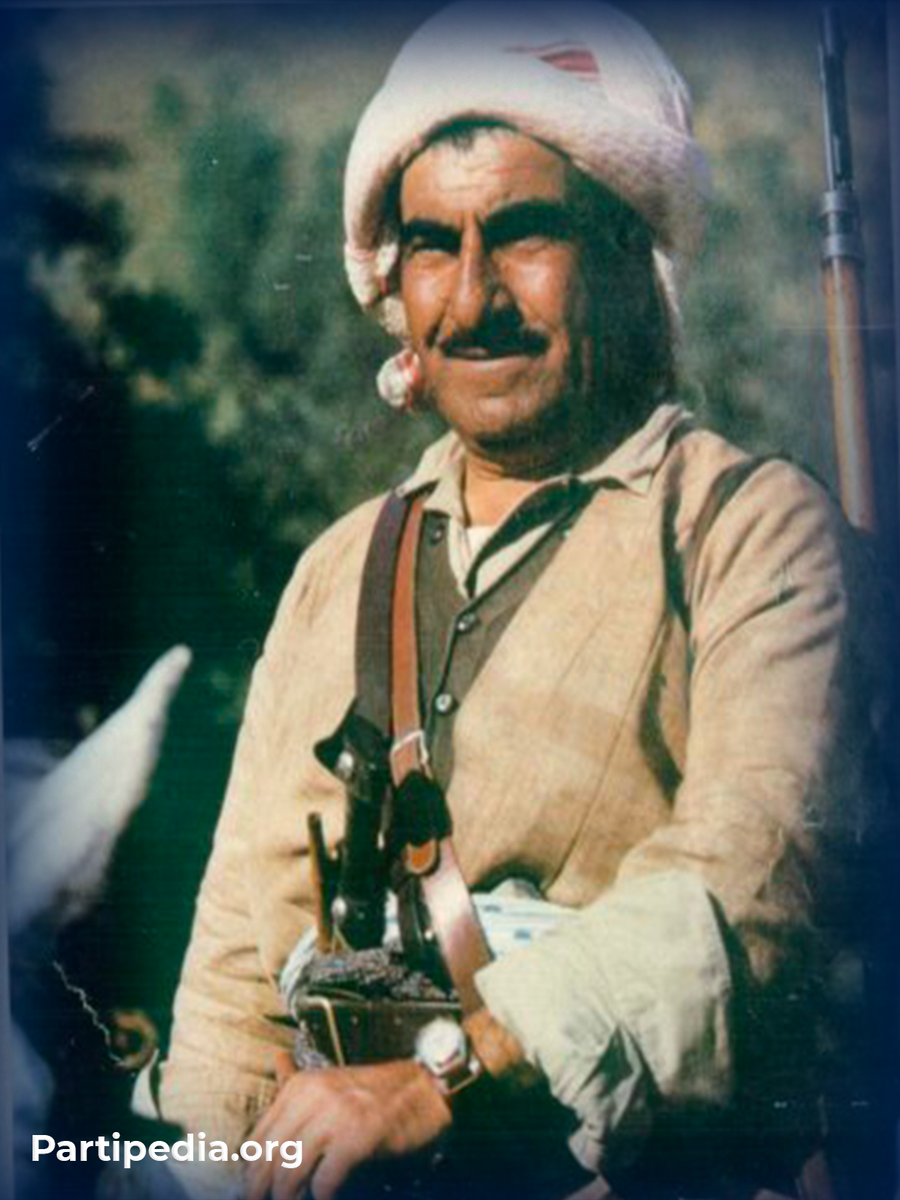Idris Mustafa Barzani, a prominent leader within the Kurdistan Democratic Party (KDP) and the son of President Mustafa Barzani, rose to prominence following his active participation in the Eylul Revolution. He served as an assistant to President Mustafa Barzani, contributing significantly in military and social affairs. His capability earned him admiration from allies while causing concern among enemies. As negotiations between the Kurdish People's Liberation Movement, led by General Mustafa Barzani, and the Iraqi government progressed towards peace, Idris Barzani played a crucial role. Consequently, adversaries sought ways to undermine him, resorting to multiple attempts on his life.
Following the March 11 agreement, the Ba'ath Party leadership proposed that President Mustafa Barzani appoint Idris as vice president of the Iraqi Republic, but Barzani declined the offer. Additionally, Idris Barzani's visit to the United States included meetings with senior officials such as US intelligence chief Richard Helms, as well as deputy secretaries of state and defense. Despite the secrecy surrounding this visit, it remains unclear whether Iraqi intelligence was aware of it. These actions underscore Idris Barzani's significant role and influence not just in social and military spheres, but also politically, solidifying his stature as a trusted figure.
Idris Mustafa Barzani's growing reputation and active role prompted the Ba'ath regime to target him for assassination. On December 1, 1970, Idris Barzani traveled to Baghdad to discuss the implementation of the March 11, 1970 agreement, focusing on the fate of the Peshmerga and the formation of the Border Guard (Zeravani) composed of Peshmergas from the Eylul Revolution. During his visit, he met with Iraqi President Ahmad Hassan Bakr and then Vice President Saddam Hussein, but the meeting was marred by an attempt on his life. President Massoud Barzani details this incident in his book "Barzani and the Kurdish liberation Movement" as follows:
On December 1, 1970, Idris Barzani, accompanied by several Peshmerga leaders, including Hamid Barwari, traveled to Baghdad to oversee the implementation of the March 11 agreement, particularly focusing on the establishment of the border guards. He intended to stay in Baghdad for three days but sent a message explaining that the president requested him to extend his stay. Meanwhile, our uncle Sheikh Babo, who awaited him in Haji Omeran and wished to return to Barzan with him by December 6, sought clarity on Idris's decision. Our uncle stated that if Idris returned within three days, he would wait for him; if not, he would return alone. Desperate to reach Idris, I attempted a call, but the weak phone connection left me grasping for information. Resorting to urgency, I contacted Erbil's police director, Sheikh Reza Gulani, urging him to relay the message to Idris that Sheikh Babo needed a swift return decision. It was God’s will, Sheikh Reza comprehended the urgency, emphasizing Idris's immediate return was imperative.
Idris had sent the Mercedes car given to him by the Iraqi president to the garage for repairs, opting to return to Erbil by taxi without notifying anyone. That evening, the Mercedes was returned, and Hamid Barwari and Mohammed Aziz, who had accompanied him to Baghdad, were preparing to depart the next day. On the night of December 6, they drove the Mercedes to a dinner party. Unknown to them, collaborators (Jashes) with Director of General Security Nazim Gazar had devised a plan to target Idris. It's not implausible that senior Iraqi officials were involved, presuming Idris was in the car. At 10 pm, the car came under fire, mistaking Hamid Barwari for Idris due to their resemblance. Hamid Barwari sustained serious injuries that later plagued him as an illness. Despite over 50 bullets striking the car, Mohammad Aziz and his driver emerged unscathed, a miraculous survival. The driver, Hassan Kawani, reacted swiftly, evading the ambush. Thus, Idris escaped the assassination attempt, as the plotters assumed he was in the presidential car, while he was safely on his way home, unbeknownst to anyone.
The assassination attempt on Idris Barzani failed, resulting in injuries to Hamid Barwari alone. As typical, the Iraqi government denied involvement and urged the Kurdish revolutionary leadership to aid in identifying and punishing those responsible. The party's Baghdad branch complied, furnishing Saddam Hussein with all available information on the incident.
Those who attempted to assassinate Idris Barzani were identified and punished by the Revolution’s (Thawra) Court, but the masterminds behind the decision to assassinate him remained concealed until the 1973 coup of Nazim Gazar, when the Iraqi government admitted Gazar's involvement.
Sources:
١. مسعود بارزانی، بارزانی و بزووتنەوەی ڕزگاریخوازی کورد، بەرگی سێیەم، بەشی دووەم، شۆڕشی ئەیلوول ١٩٦١- ١٩٧٥، چاپی یەکەم (هەولێر- چاپخانەی وەزارەتی پێشمەرگە- ٢٠٠٤).







